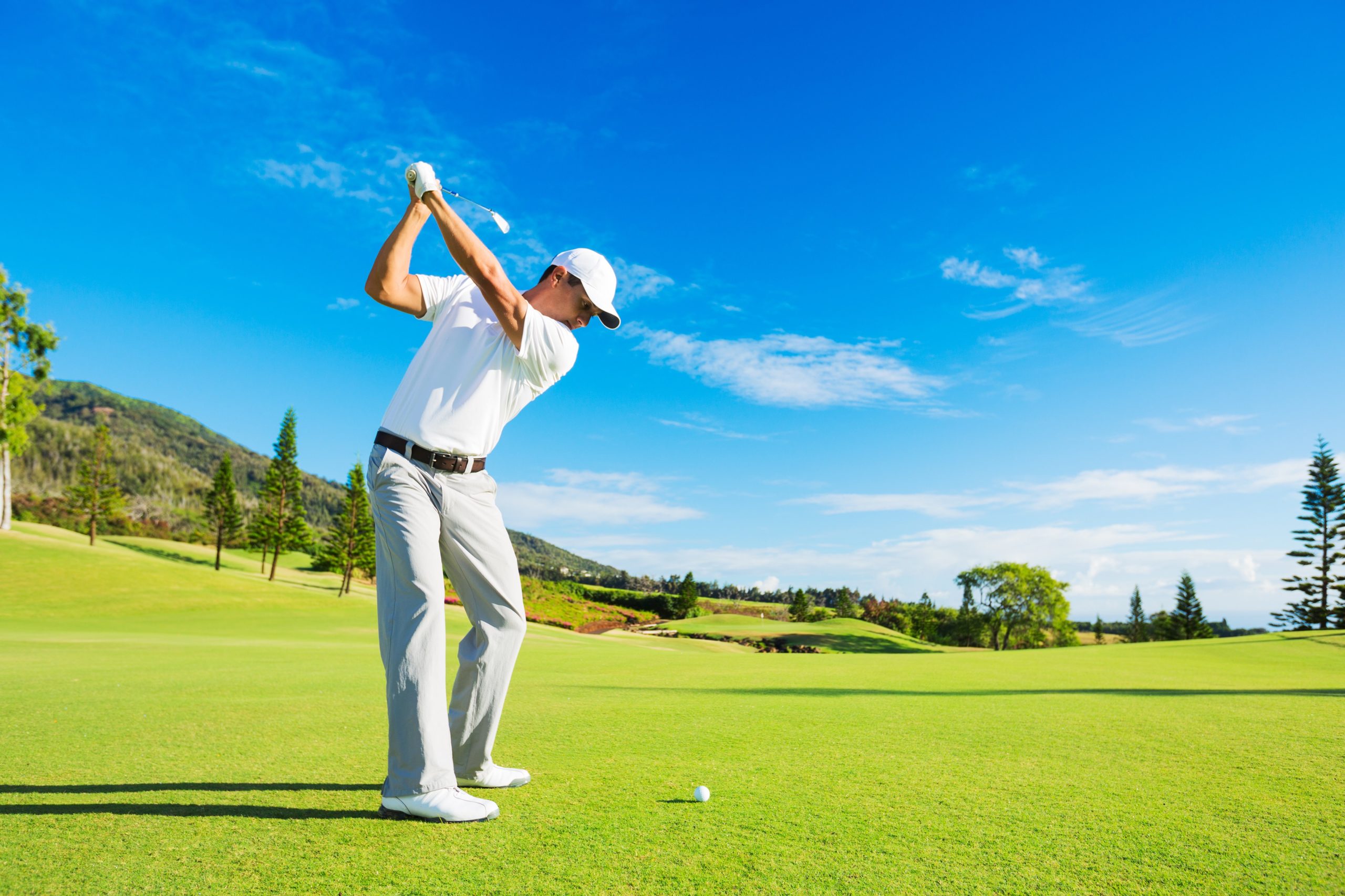
With an estimated 55 million participants worldwide, golf is a low-impact, aerobic-based exercise that allows players to have social interactions while competing with friends, family and colleagues. As with any sport, there are always opportunities for injury — and improvement.
Low-Back Pain Adversely Impacts Golfers
“More than 30 percent of golfers have experienced issues related to low-back pain or injury that have affected their ability to continue enjoying the game of golf,” according to the University of Pittsburgh Neuromuscular Research Laboratory.
Naturally, you might assume low-back pain is directly related to the way a golfer is swinging the club. While a golfer’s swing may play a part, there can be additional factors involved.
For example, decreased flexibility and strength, which happens naturally as we get older, can be contributing factors. Additionally, golfers who are less active or do not exercise regularly can be susceptible to injury.
Compressive Forces Can Cause Major Pain
The less flexibility in your body’s trunk, the more overall pressure your spine faces. For example: As you swing a golf club, you could have several muscle groups in your back working all at once in an effort to stabilize your spine. All that movement and work, though, can lead to compressive forces that place immense pressure on your spine, potentially worsening an existing condition or injury.
Increased Flexibility Equals Better Accuracy, Longer Drives
Physical therapy can provide a significant boost to your body and get you feeling better on and off the golf course. Considered musculoskeletal specialists, physical therapists can perform a screening to determine whether you are at increased risk of injury. Your physical therapist can then design a tailored exercise program geared toward preventing injury. Not only can physical therapists decrease your likelihood of experiencing low-back pain or other injuries, we also can increase your flexibility.
Increased flexibility in the hips, trunk and shoulders allow a golfer to achieve more rotation during the backswing phase. Better flexibility allows for a more uniform, fluid forward swing, which permits more force production throughout the acceleration phase. You can reap the benefits of a longer drive and more accurate swing.
Good Shepherd Physical Therapy’s Golf Performance and Injury Prevention Program focuses on enhancing individual player functionality. Trained by the Titleist Performance Institute, Good Shepherd physical therapists have received specialized certification that uniquely qualifies them to identify player habits and faulty movement patterns that hinder performance on the golf course. Whether you’re a scratch golfer, a duffer or somewhere in between, if you’re experiencing discomfort, request an appointment with one of our Titleist-certified physical therapists.
For more information on rehabilitation after a sports injury, call Good Shepherd at 1-888-44-REHAB (73422).
Reference: golfweek.com
